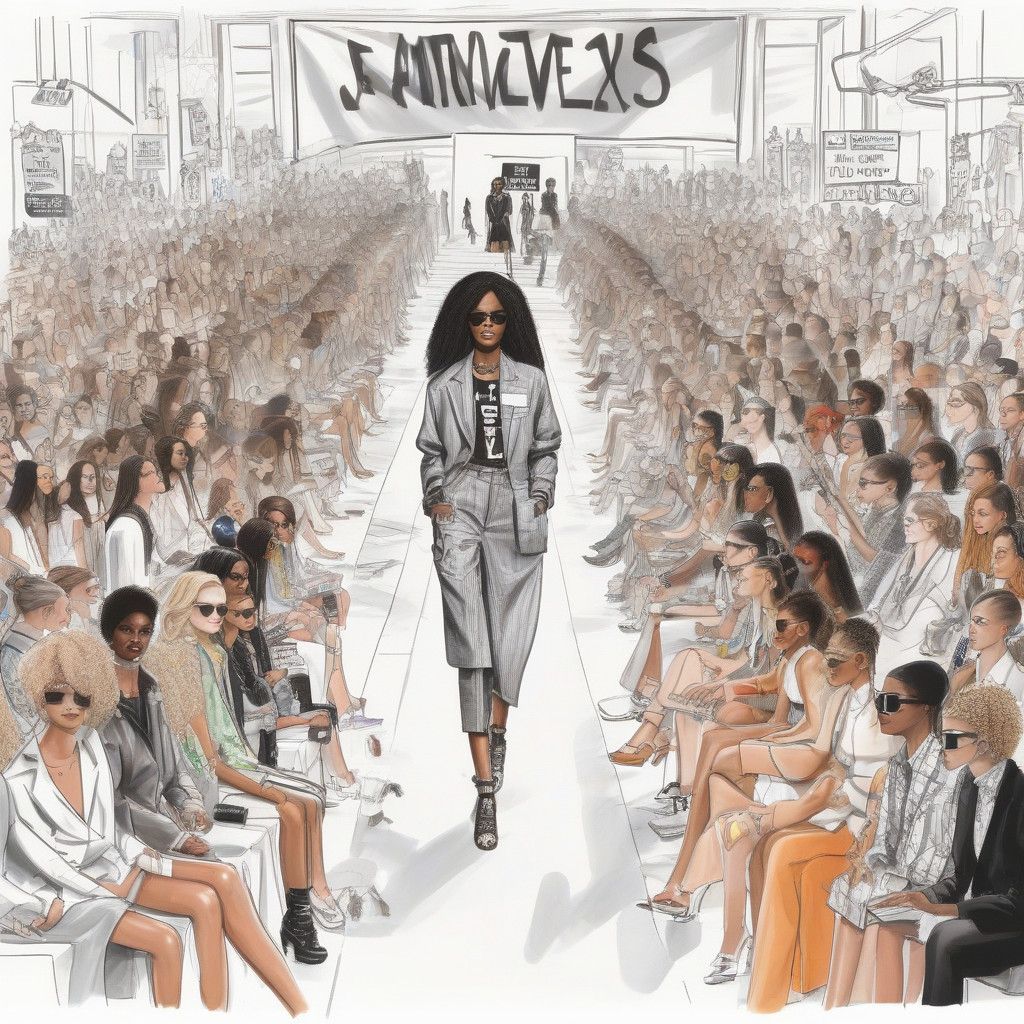On the opening day of New York Fashion Week, the glamour of the runway took a compelling backseat as the fashion community rallied for political activism. The Council of Fashion Designers of America (CFDA), in collaboration with Vogue and the nonprofit organization I Am a Voter, orchestrated a non-partisan march titled “Fashion for Our Future.” This powerful demonstration aimed to inspire the public to register to vote ahead of the upcoming U.S. Presidential election.
The march commenced in Herald Square, culminating at Bryant Park, the historic venue for New York Fashion Week. Participants included prominent figures from the fashion industry, such as Anna Wintour, Vogue’s editor-in-chief, and esteemed designers like Thom Browne, Michael Kors, and Cynthia Rowley, all donned in specially designed white t-shirts from Old Navy that boldly read “Vote,” a design created by Zac Posen. The streets were filled with chants of “V-O-T-E, Vote!” and signs bearing slogans like “Fashion for Our Future,” rendered in vibrant red and blue.
This gathering drew over 1,000 industry insiders, a community committed to not just fashion, but to the civic engagement of the populace as well. “It’s important that people feel excited and that no one feels casual about the stakes [of the election],” expressed Jackson Wiederhoeft, the founder and creative director of his namesake label. “We take fashion week seriously because we take the fashion industry seriously and our consumers and what they care about.”
At the end of the march, Thom Browne, the chairman of the CFDA, addressed the crowd, reaffirming the fashion industry’s influential role in shaping public opinion during this election cycle. His remarks highlighted the powerful voice that fashion embodies, asserting, “Fashion is not just about what we wear. It’s a powerful voice and platform for what we stand for.”
This march is only the latest development in the CFDA’s ongoing commitment to civil engagement, which has been evident since 2020. Their partnership with I Am a Voter has facilitated multiple initiatives aimed at increasing voter registration and awareness. At Bryant Park, volunteers were stationed to assist attendees in signing up to vote, further reinforcing the event’s non-partisan stance.
While organizers urged participants to avoid displaying paraphernalia that endorsed any political party, subtle signals of political allegiance emerged. For instance, Wintour sported a scarf by Browne that was part of a merchandise collection for Democratic candidate Kamala Harris. The event’s impact was amplified by the surprise attendance of First Lady Jill Biden, who emphasized the necessity of preserving “creative expression” within the fashion industry against what she termed oppressive policies. Her message resonated deeply with the audience, inciting fervent applause.
The fashion sector has historically leaned towards progressive ideologies, as illustrated by the collaboration of a coalition of designers, known as Designers for Democracy. This group recently produced a collection of merchandise in support of the Harris campaign. In a related example from the previous week, Wintour and other industry giants hosted a high-profile fundraiser for Harris in the Hamptons.
Social media reactions to the march were diverse; many applauded this bold initiative while others highlighted the industry’s often contradictory relationship with sustainability. As one commenter noted on Vogue’s Instagram, “This is very comical, coming from an industry that has some of the most damaging, predatory practices in labour and the environment. But glad they got their steps in.”
Moving forward, branding experts anticipate a return to a broader voter engagement messaging strategy from fashion companies, rather than explicit endorsements of specific candidates. Brands like Patagonia and Glossier are already taking steps in this direction; Patagonia plans to offer employees a day off to vote and Glossier is collaborating with When We All Vote to boost voter participation.
As Mandana Dayani, founder of I Am A Voter, aptly stated, “Fashion is so integral in shaping culture. People just really need to be inspired to participate.” The call to action issued during New York Fashion Week signifies not only the importance of voter registration in the upcoming election but also underscores the intertwined destinies of fashion and the social-political climate within which it operates.












